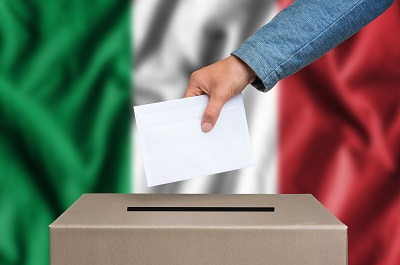
Is Italy going to have elections in the fall? Or will it have a new government, supported by a coalition of the populists and the mainstream left, bringing to an end the coalition of the populist left and the populist right which has led the country in the last few months?
Jacopo Barigazzi on Politico provides a good summary of a political crisis which is rather peculiar even by Italian standards:
For almost 14 months, Salvini has been saying that this government will last five years. But last week he tried to end it.
One of his main opponents, former Prime Minister Matteo Renzi, when he was still the leader of the PD, opposed any deal with the 5Stars. Yet on Sunday, in an interview with Il Corriere della Sera, he opened the way to exactly such a deal.
The 5Stars’ founder, comedian Beppe Grillo, has been one of the main sponsors of the coalition with Salvini and a fierce critic of the PD. Yet on Saturday in his blog, he described the League as “barbarians” and seemed open to a deal with the PD that could see the two sides link up and force the largest party in the country — the League — into opposition.
Even by Italian standards, this is rather too much: the daily La Stampa on Monday asked if the country is about to see “the most spectacular turnaround in history?”
A few considerations:
1. Italy is a parliamentary democracy, and the electoral system under which we voted in 2018 (largely a purely proportional representation system) emphasizes this very fact. The current government is supported by two parties which were electoral adversaries; a new government will be like that again- a coalition that voters did not directly approve of;
2. Mr Salvini’s Northern League has experienced a tremendous surge in popular support in the last year. In the March 2018 elections, the League got 17% of the voters, in May 2019 European elections 34%. At the same time, the left populist Five Stars Movement went downhill, from 33% in 2018 to 17%. The moderate right-wingers of Silvio Berlusconi’s Forza Italia moved from 14% to 8%. This makes for a situation in which Mr Salvini’s party members know they are likely to be reelected and grow their parliamentary ranks, but many others fear the opposite will happen to;
3. Mr Salvini has thus a big incentive to go for early elections, whereas many others do not. This would be very early elections: a legislature in Italy is supposed to last five years;
4. if the legislature lasts five years, the presidency of the Republic is a 7 years job. The new one would be elected by this Parliament, if it lasts. If it doesn’t, by the next one. Many fear that Mr Salvini may appoint a puppet figure of nationalist leanings, were he to substantially control Parliament;
5. Mr Salvini has called for elections in a very direct way, thinking of maximizing his own returns. But his justification for quitting the government is rather weak: he called his former coalition partners naysayers, because of their skepticism towards infrastructure spending, which was always a part of their creed (which tends to praise “degrowth” and de-industrialization).
What will happen next? It is hard to say. The leadership of the Democratic Party may have an incentive to go to early elections too, because they are likely to do better than in 2018, because the new party leader may substantially renovate its parliamentary groups to his own advantage. Yet those very same parliamentarians, who rose in their position riding on the coattails of the previous leader (Mr Renzi), are not so happy to go.
It is a rather fascinating scene, if you like politics and in particular the most intricate and convoluted kind, like Italy’s. But it is also illuminating. Very frequently, in these days, grand words such as “national interest” come up on politicians’ lips. They are, however, devoid of any specific content, tend never to consist in clear calls for reforms, and clearly are moulded to mean a longer or a shorter duration of the present Parliament – we don’t know which is in the national interest, but it is certainly in the interest of either this or that group.

Comments are closed.